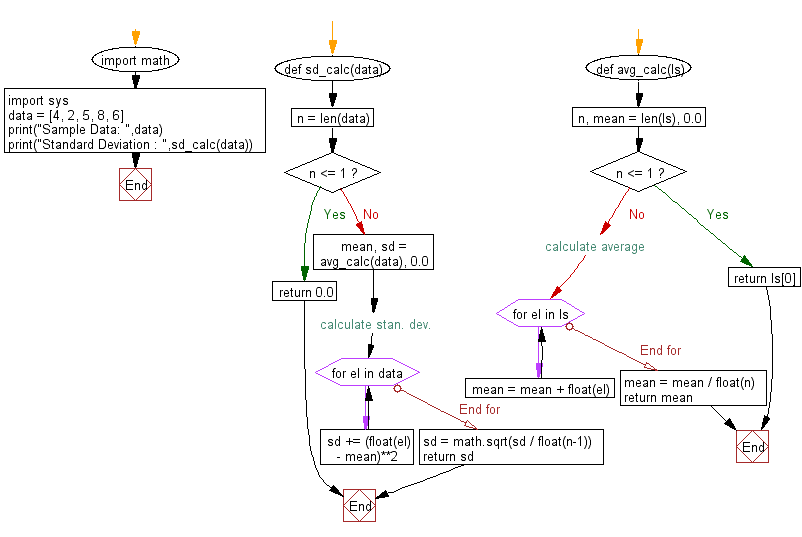Python Math: Calculate the standard deviation
57. Standard Deviation Calculator
Write a Python program to calculate the standard deviation of the following data.
Sample Solution:
Python Code:
import math
import sys
def sd_calc(data):
n = len(data)
if n <= 1:
return 0.0
mean, sd = avg_calc(data), 0.0
# calculate stan. dev.
for el in data:
sd += (float(el) - mean)**2
sd = math.sqrt(sd / float(n-1))
return sd
def avg_calc(ls):
n, mean = len(ls), 0.0
if n <= 1:
return ls[0]
# calculate average
for el in ls:
mean = mean + float(el)
mean = mean / float(n)
return mean
data = [4, 2, 5, 8, 6]
print("Sample Data: ",data)
print("Standard Deviation : ",sd_calc(data))
Sample Output:
Sample Data: [4, 2, 5, 8, 6] Standard Deviation : 2.23606797749979
Pictorial Presentation:
Flowchart:

For more Practice: Solve these Related Problems:
- Write a Python program to compute the standard deviation of a list of numbers using the statistics.stdev() function.
- Write a Python function to calculate the standard deviation manually from a list of numbers and compare the result with statistics.stdev().
- Write a Python script to accept a sequence of numbers from the user, compute the standard deviation, and print the result.
- Write a Python program to generate a random dataset, compute its standard deviation, and display the result with 5 decimal places.
Go to:
Previous: Write a Python program to calculate the absolute value of a floating point number.
Next: Write a Python program to print the floating point from mantissa, exponent pair.
Python Code Editor:
Have another way to solve this solution? Contribute your code (and comments) through Disqus.
What is the difficulty level of this exercise?
Test your Programming skills with w3resource's quiz.
